1. APICS Certified Supply Chain Professional (CSCP)
CSCP (Certified Supply Chain Professional) is the world’s leading prestigious certificate in supply chain management (SCM), provided by APICS. First introduced in 2006 and now more than 16,000 professionals in 79 countries have obtained this certificate.
CSCP provides the necessary tools to effectively manage the operations of the global supply chain, the knowledge, technologies to run the ERP system and optimize the supply chain.
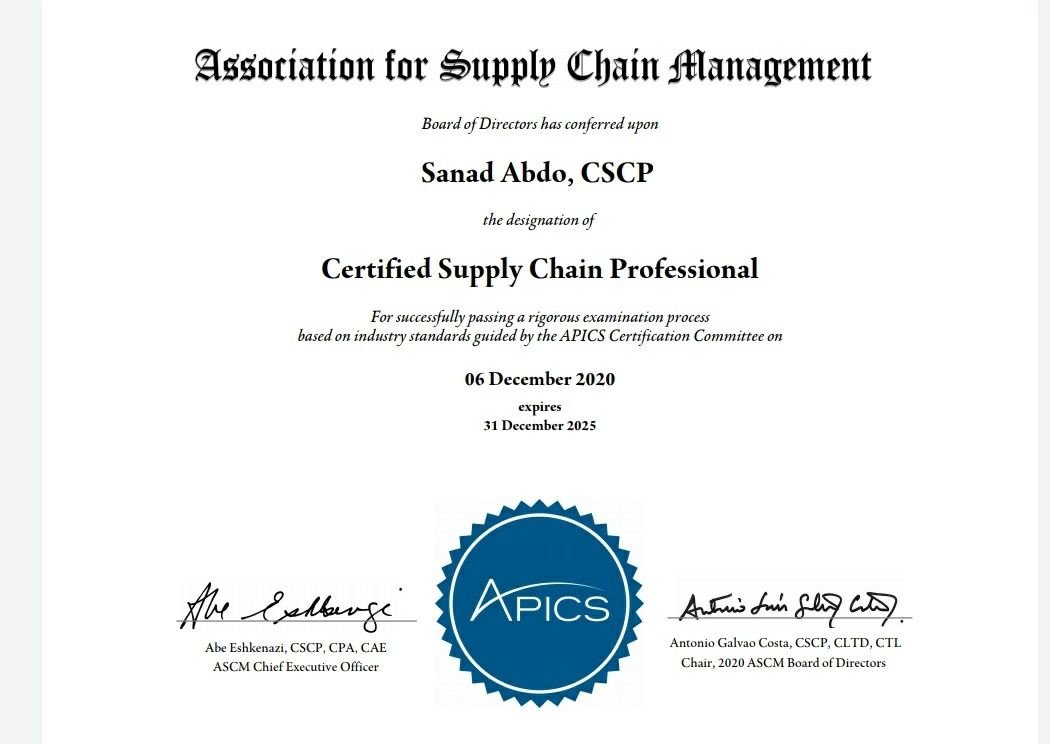
CSCP proved its benefits as 95% of people in SCM still keep their jobs even during the Covid pandemic and earn 27% more than the average salary for those who do not have.
The condition to take the CSCP exam is to have at least 3 years of working experience, have a bachelor’s degree or certificates such as CPIM, CLTD, CPSM, v.v. which are still in validity.
2. APICS Certified in Production and Inventory Management (CPIM)
CPIM (Certified in Production and Inventory Management) is an International certification in Production and Inventory Management certified by APICS. This is a fairly popular certification and 87% of Senior Managers in the Supply Chain choose this certificate.
CPIM provides knowledge about production and inventory management processes across the firm, how to effectively use enterprise resources, and apply technology to improve supply chains.
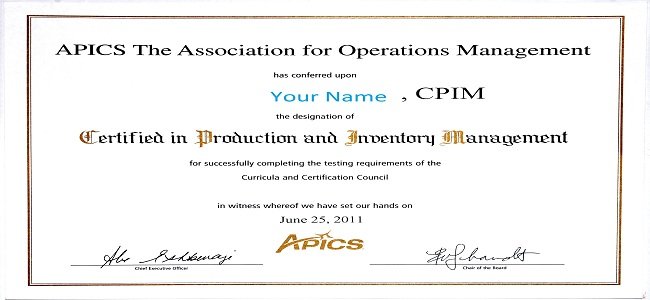
CPIM programs do not require a college degree. However, to get it, you need to take and pass 2 exams including CPIM part 1 and CPIM part 2 within 3 years.
According to ASCM statistics, people with CPIM earn 14% more than those without it.
3. APICS Certified in Logistics, Transportation and Distribution (CLTD)
CLTD is a certificate in Logistics, Transport, and Distribution certified by APICS. CLTD is proof to recruiters that you deeply understand the best strategies to streamline logistics, transportation and distribution operations. CLTD focuses on warehouse management, inventory tracking and ordering.
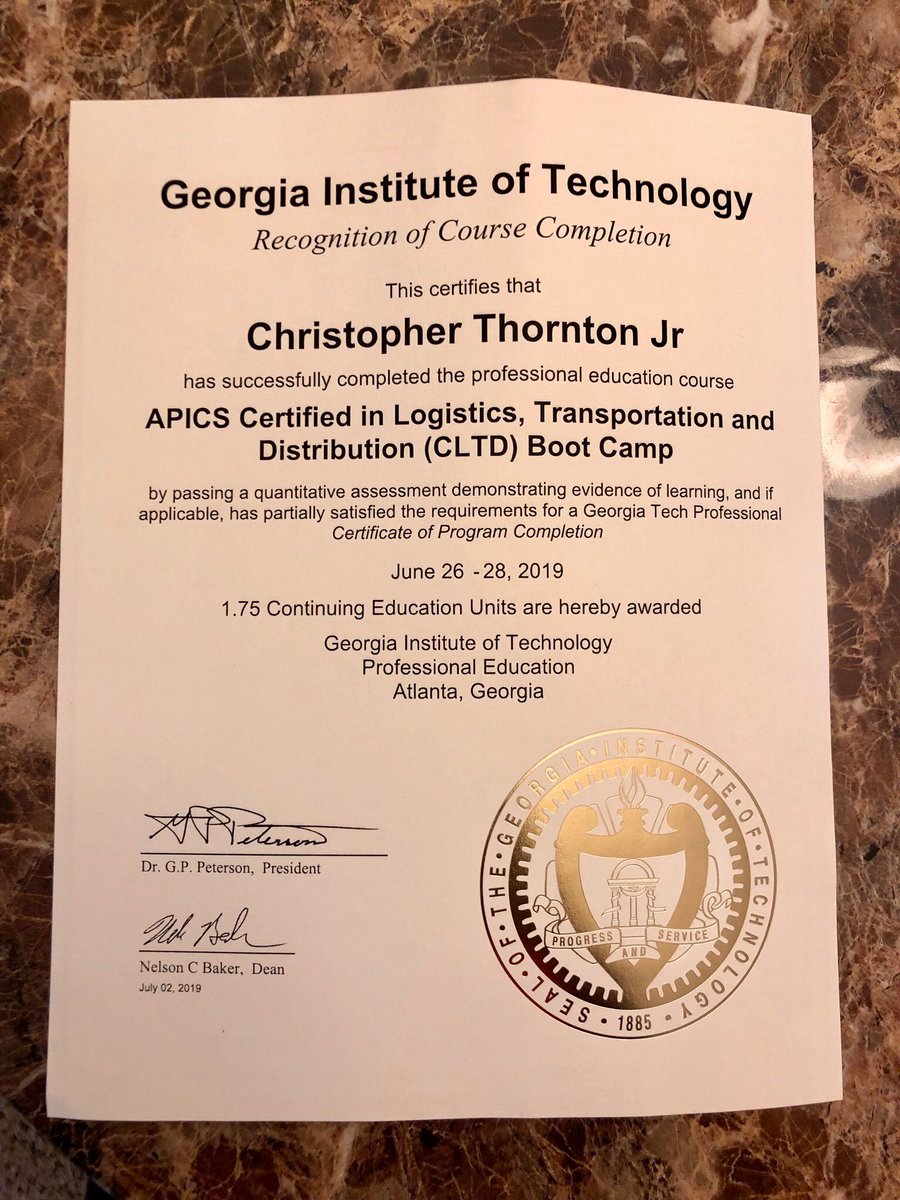
4. ISM Certified Professional in Supply Management (CPSM)
CPSM (Certified Professional in Supply Management) is a professional certification in supply management and certified by the Institute of Supply Management ISM – the oldest and largest supply management association in the world.
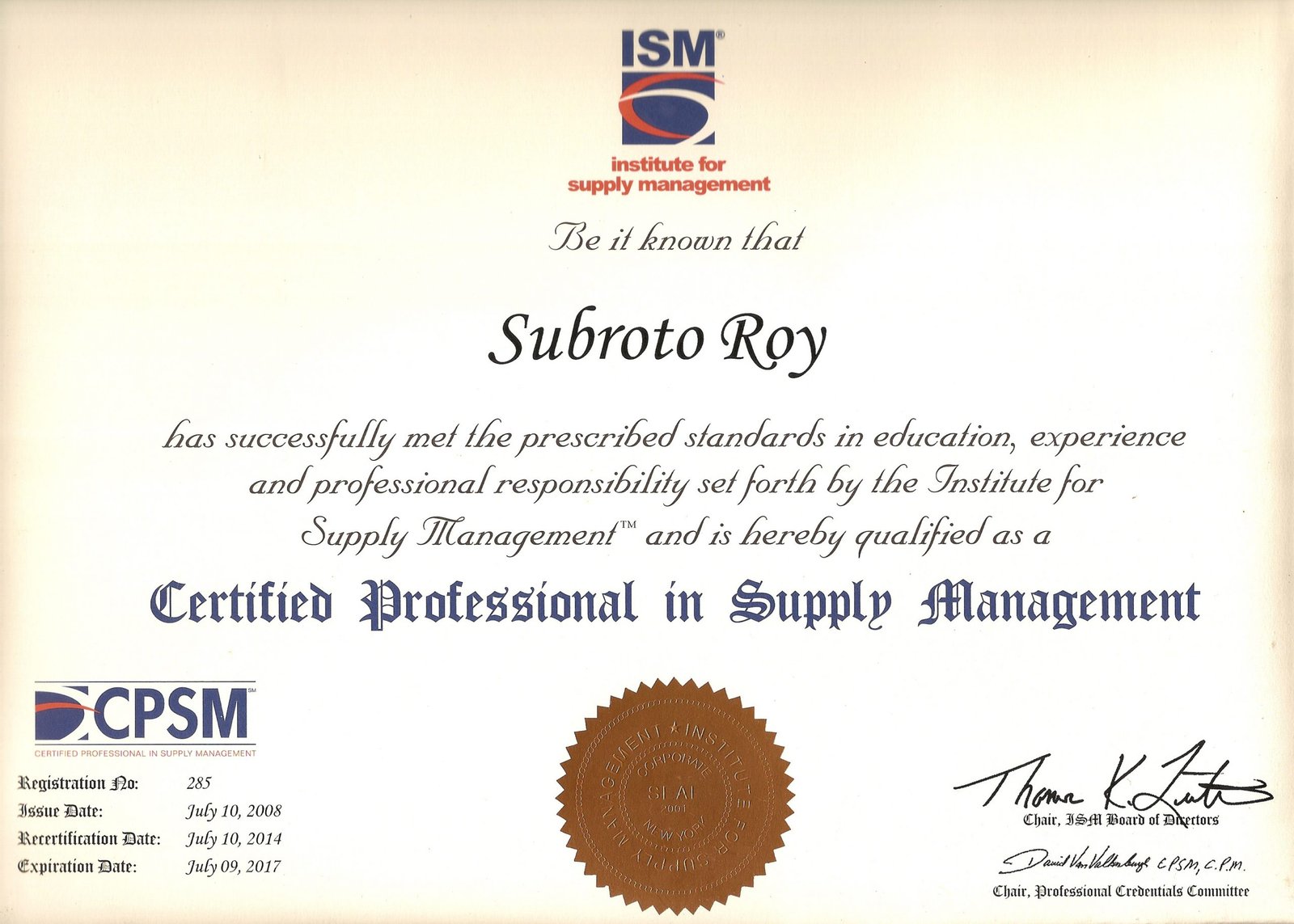
CPSM focuses a lot on “Procurement” activities. To get a CPSM, it is crucial to comprehend procurement methods, contract management, and financial management of the procurement process.
The requirement to take the CPSM exam is to have at least 3 years of full-time supply chain management experience.
According to the 2018 ISM salary survey, professionals with CPSM earn on average 14.7% higher than those without it.
5. CSCMP SCPro Certification
SCPro is the certification of the Association of Supply Chain Management Professionals CSCMP. SCPro is a three-tiered assessment of advanced knowledge and skills in integrated supply chain operations. This certification requires the ability to analyze case studies, identify challenges of organization, develop improvements to supply chain operations and execute project plans to achieve strategic results.
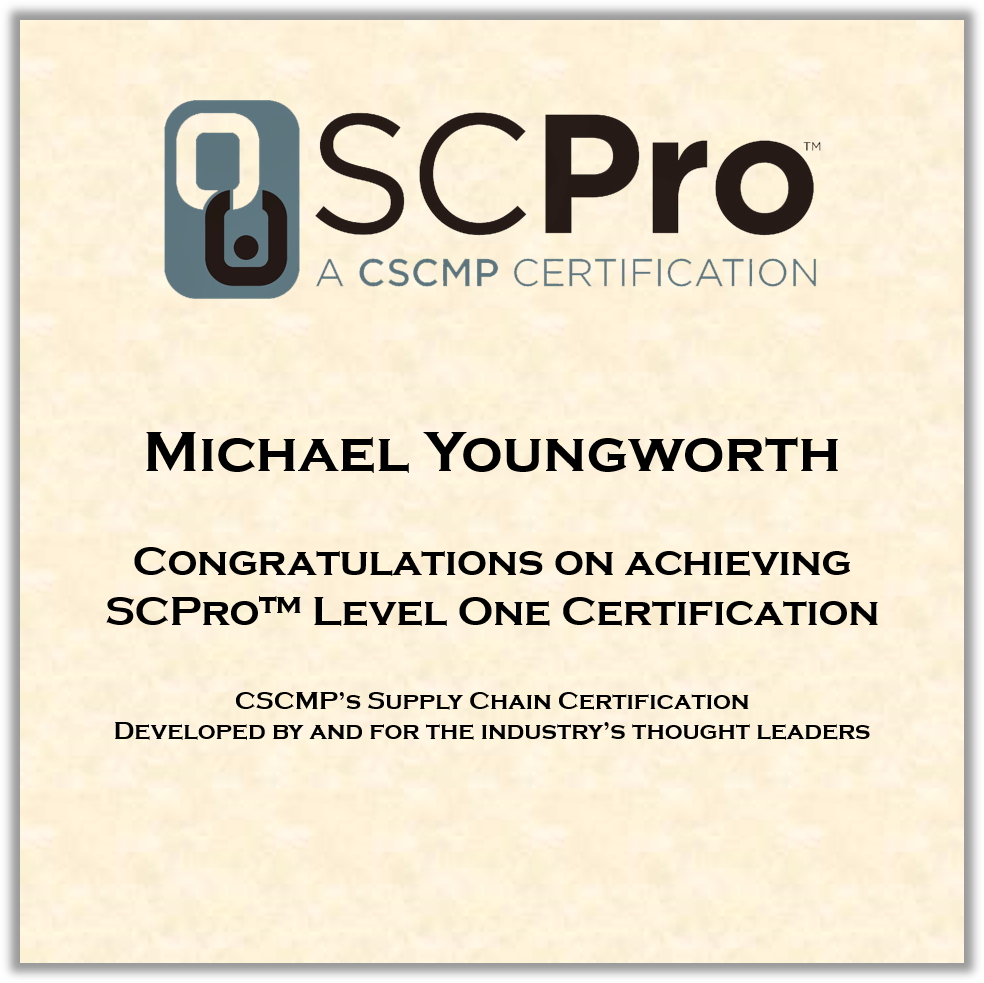
Each level of this certification process has specific eligibility requirements:
- SCPro Level One: requires college degree or 4 years of professional experience in SCM.
- SCPro Level Two: Analysis and Application of Supply Chain Challenges – requires a level 1 certificate as well as a university degree and 3 years of professional experience or 7 years of SCM experience.
- SCPro Level Three: Initiation of Supply Chain Transformation – requires level 1 and level 2 certification, university degree, 5 years of professional experience or 9 years of supply chain management experience.
6. FIATA DIPLOMA IN INTERNATIONAL FREIGHT MANAGEMENT
Certificate in International Freight Forwarding is issued by the Federation of International Freight Forwarders Associations (FIATA) – the world’s largest freight forwarding organization, with over 150 member countries and valid worldwide. This type of certificate is valid for an unlimited time.
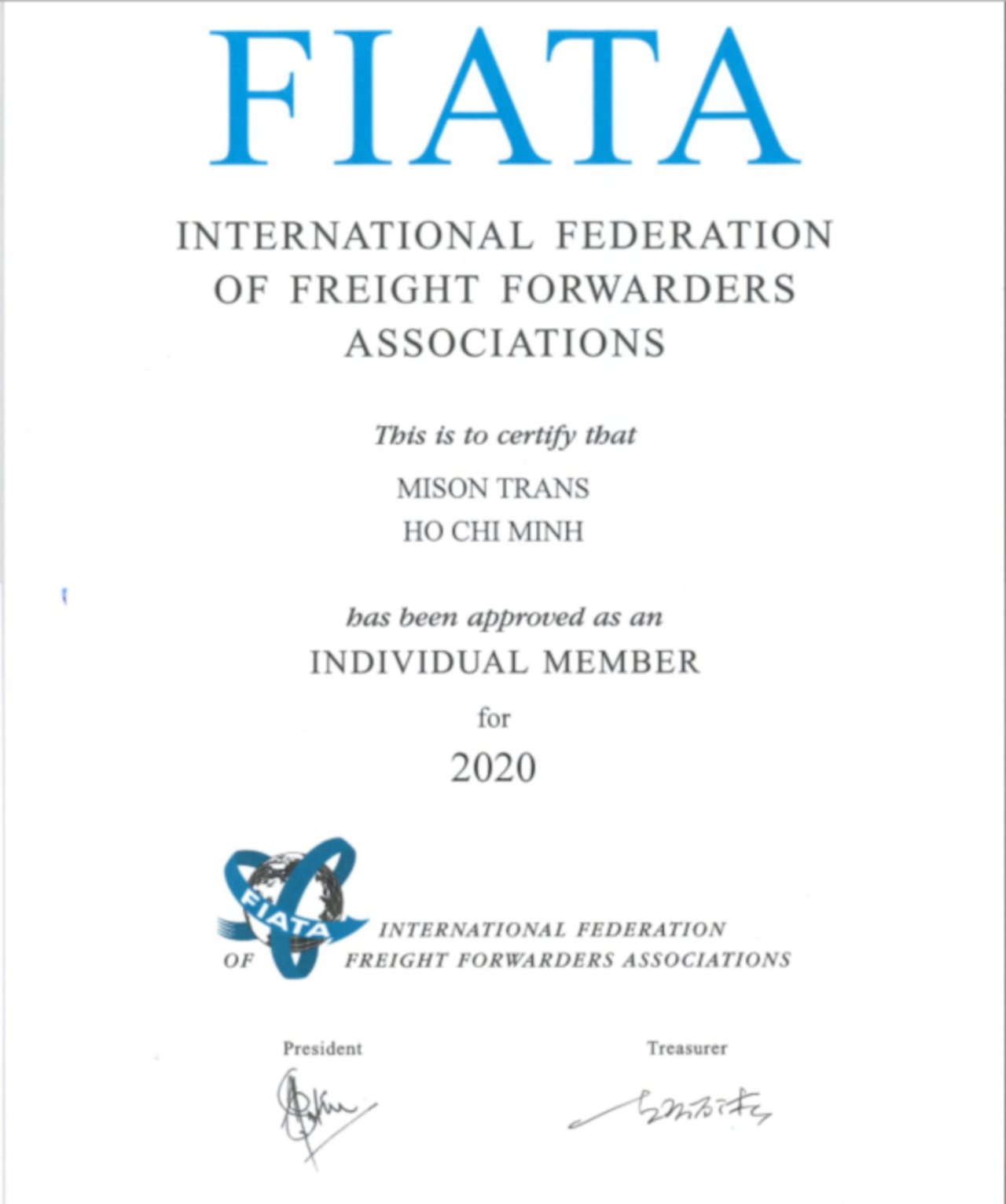
International freight forwarding management is an activity that plays a key role in the global logistics service chain.
Thus, a FIATA certificate holder will need to have knowledge of international freight forwarding, warehouse operations, sea freight, sea container transport, multimodal transport, customs procedures, security and safety, information technology in forwarding, etc.
FIATA’s certificate does not require experience. Students of international business, foreign trade, logistics, v.v. or managers, employees working in the field of logistics, import-export, production are able to take this certi.
7. Six Sigma
Differently, Six Sigma can be certified from many organizations such as firms, universities, corporations, etc. Also, the curriculum varies.
Six Sigma is a framework that allows companies to improve their business processes. DHL, Ryder, 3M, GE and Xerox have used Six Sigma to optimize their operations.
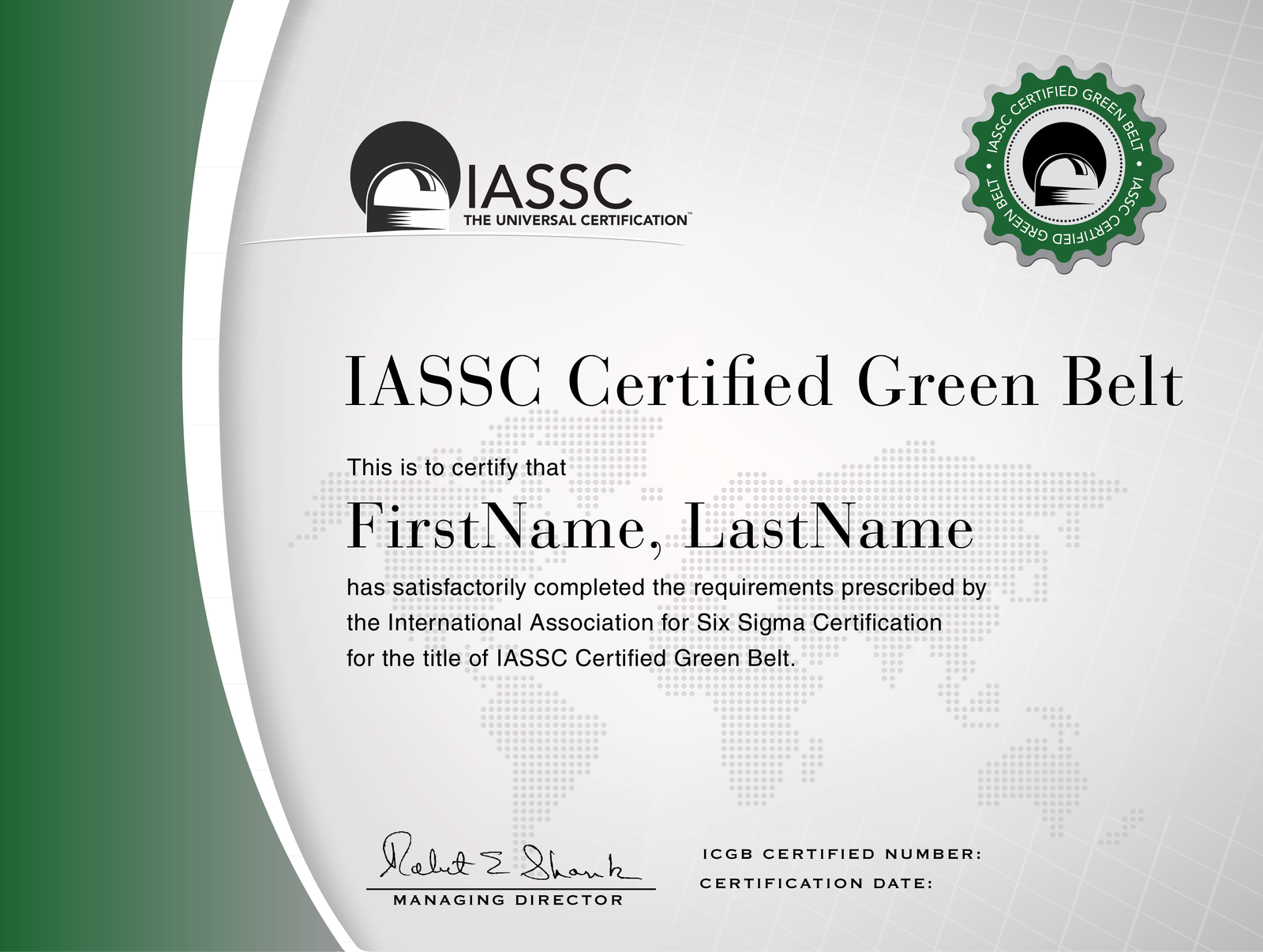

Six Sigma is focused on developing reliable management processes that result in virtually zero defects in any phase of business. Six Sigma levels correspond to the position of an individual in this organization.
Hong Dao
ĐỌC THÊM:
Why do containership stacks collapse and who is liable?- Part 2: Legal liability













